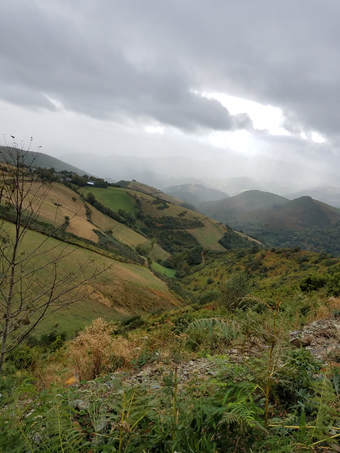 Gratitude, psychologists tell us, is good for us. In the last twenty years, study after study has confirmed that people “who live a life of pervasive thankfulness” (those inclined to count their blessings and see life as a gift, according to Dr. Robert Emmons) reap undeniable mental health benefits. They have a lower incidence of depression, higher satisfaction with life, higher levels of happiness and well-being. The Grateful Living also have better immune systems, physical health, and longer life expectancy. Psychologist Robert Emmon’s pathbreaking work on this topic explores not just that theme, but also the fortuitous effects of gratitude on community. Grateful people, he finds, are more likely to be altruistic, service-oriented people, who cheerfully give back to the community because they see themselves as fortunate and their lives (regardless of material condition) as abundant. Gratitude truly is, as Cicero observed, the parent of all virtues. So, it turns out that our national tradition of reserving the fourth Thursday of every November for Thanksgiving is a cutting-edge idea. This year’s annual feast of gratitude comes at a time when many in our land are not feeling particularly thankful. We seem to be focused on the slimy road we’re walking and the boulders that may trip us up. And there are boulders. We’re not at a summit, where we can look back, see the big picture, and pronounce it good. But that inability—to see the abundance and beauty, and not just the muck at our feet—is partly of our own making. One thing that makes human beings different from other mammals is historical memory. We have the ability not simply to recall the past, but to make sense of it, gauging where we are relative to where we have been. In this modern era, we don’t do that often enough; we tend to focus on the short-term issues. But if we do a big picture look-back, we human beings have come a long way, baby, in a short period of time. What do we have to be grateful for this November 2018?
It’s true that these indices of global prosperity, health, and education, are “just” material realities, rather than indicators of political or moral development. But these are objective, hard-won triumphs, and we have a lot to be thankful for. The world is (in very many ways) in a much better place now than it was as late as 1990. And the United States- a nation of problem-solvers, innovators, and trail-blazers in technology and medicine-has had a lot to do with that. So, this Thanksgiving, while we walk the rocky road ahead of us and pray for a better foothold, let’s stop for a minute, remember that we have been in darker places, and count our blessings. Buen Camino! Mary Beth Klee To read more from Telling Our Stories, visit our Blog Archives page. |
AuthorWrite something about yourself. No need to be fancy, just an overview. Archives
July 2024
Categories |
